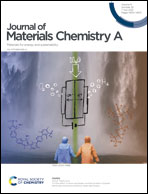Lignocellulose-derived hydrogel/aerogel-based flexible quasi-solid-state supercapacitors with high-performance: a review
Abstract
The proliferation of electrochemical energy storage (EES) devices demands more advanced power/energy storage technologies. Flexible quasi-solid-state supercapacitors (FSSCs) have been attracting rapid and considerable attention as they exhibit unique and promising advantages, such as a long cycle life, light weight, high power density, and environment friendliness. Hydrogels, commonly synthesized by chemical and/or physical cross-linking of monomers and/or polymers, have already become an emerging platform for the rapid development of FSSCs. Lignocellulose materials are green/sustainable, abundant, and low-cost; due to the synergy of lignocellulose and hydrogels, the development of lignocellulose-based hydrogels/aerogels with distinguished physicochemical properties (e.g., high flexibility, good mechanical strength, and rapid charge transport) offers emerging opportunities for FSSCs. This review highlights the fundamental understanding and recent developments of lignocellulose and supercapacitors, with focus on the latest concepts/technologies in developing hydro- and aerogels based on lignocellulose as major components in FSSCs, structural design, and improvement of the performance of lignocellulose-based electrodes and electrolytes. Furthermore, the challenges and opportunities during the development of lignocellulose-based hydrogels/aerogels in FSSCs are discussed.

- This article is part of the themed collection: Journal of Materials Chemistry A Recent Review Articles


 Please wait while we load your content...
Please wait while we load your content...